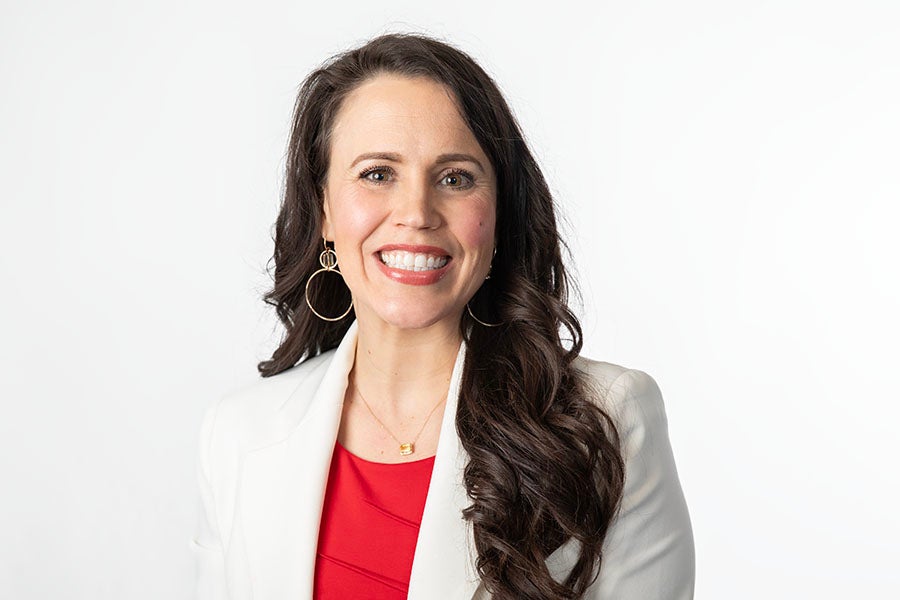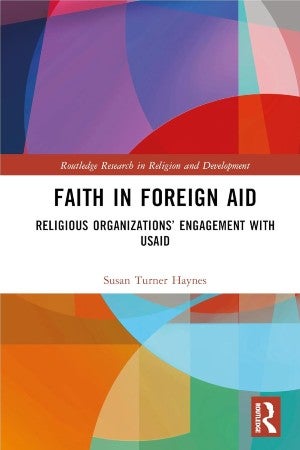Haynes’ new book explores government funding of religious groups providing foreign aid
Students played a big role in researching the under-examined relationship between religious organizations and USAID.
Keely Hagan | 615-966-6491 |

This summer, Susan Turner Haynes, professor in the Department of History, Politics and Philosophy, will see the final outcome of a four-year scholarly project with the potential to inform public policy hit bookshelves.
Faith in Foreign Aid: Religious Organizations’ Engagement with USAID, a pioneering work that explores the relationship in practice between religious organizations and the United States Agency for International Development (USAID), is set for release in July.
While the United States is the world’s largest contributor to foreign aid, with an emphasis for the past 20 years on engaging in aid with religious organizations, Haynes’ research shows that these organizations receive a significantly lower percentage of funding compared to their secular counterparts. Faith in Foreign Aid is the first work to extensively delve into the reasons behind this disparity.
The book promises to shed light on the complex interactions between faith-based organizations and government aid. The insights it provides could potentially reshape collaborations towards common humanitarian goals, Haynes says.

“This book would not have been possible without the diligent involvement of my students from the outset,” Haynes says, and adds, “The empirical puzzle would not have come to light without their early interest and work.”
Antonina Lucido (’22), a research assistant on the project, says, “Dr. Haynes was phenomenal to work with. She made me feel like a collaborator, someone who had good ideas and could view the world in an interesting way and inform others.”
From 2018 to 2022, Haynes worked with 38 undergraduates who took on substantial roles, some akin to that of graduate assistants. They coded two decades of government data, crafted an original survey that garnered responses from 400 organizations and conducted numerous interviews. Their findings brought to light common misperceptions about the separation of church and state and fears that religious missions might be compromised when accepting government aid.
Despite having a heavy course load—teaching Politics in Developing Countries, American Foreign Policy and Constitutional Law—Haynes found that her engagement with curious and intelligent students enhanced her research. While teaching these three distinct subjects, an unexpected connection was made that pulled together the threads of her classes.
Then-undergraduate Carrie Cowart-Johnson (BA ’19, MBA ’20) introduced Haynes to Stephanie Shackleford, formerly with the International Republican Institute, who Haynes credits for giving her the research question: Why is there a disconnect between religious organizations and USAID funding?
“It was a new question that had to be answered with data,” Haynes says. “The project created a unique opportunity for students to answer a real-life social sciences research question.”
Over the course of their work, Haynes’s students not only gained invaluable research experience but also developed hard skills in data management and Excel, positioning them strongly for the workforce and graduate school.
“My experience was so informative and so impactful that I actually diverted my professional trajectory to pursue strategic planning research,” says Lucido.
Cowart, Jake Guerrero (’18) and Payman Beduhe (’19), began working on the pilot project in the summer of 2018 and continued through their senior years. Three students served as research assistants at various points: Konnor Gottfred (’22), Lucido, and Lauren Bailey (’24).
Other students who worked on the project are: Debra Zhang, Ben Hemby, Kalli Close, Andrew Daffron, Cavin Jacobson, Eden Melles, Abby Komistek, Veronika Jones, Nicole Hemphill, Brian Hendrickson, Merry Holland, Zach Laws, Christian Layne, Jackson Stubblefield, Dexter Woods, Kayla Wood, Austin Travis, Dane Mortensen, Brenna Wolfe, Allison Cozart, Sara Malham, Daniel Taft, John Gill, Addison Gross, David Iskander, Luke Jenkins, Hamilton Jones, Madeline Knight, Mackenzie McConnell, Huy Nguyen, Kiley Sayre and Elena Walker.
Haynes says, “I hope they feel pride in their contributions. Their work was essential to the success of this project.”